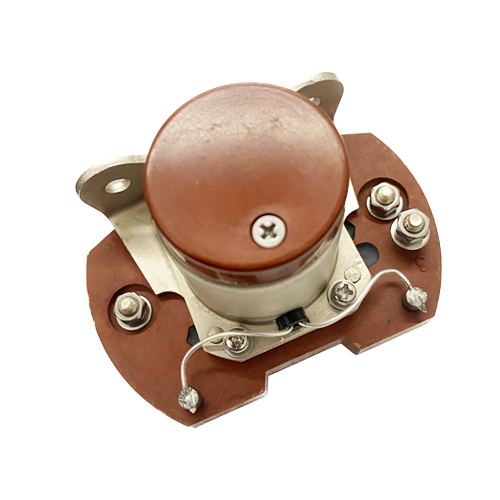Understanding DC Contactors: Essential Components for Electronic Applications
2025-07-19

DC contactors are electromagnetic switches that enable or interrupt the flow of direct current (DC) in electrical circuits. They are often utilized in applications requiring the control of high-current devices such as motors, transformers, and lighting systems. Unlike their AC counterparts, DC contactors are specifically designed to handle the unique characteristics of direct current, including voltage stability and arcing tendencies.
One of the primary functions of a DC contactor is to enable remote control of electrical devices. By using a small control signal, the contactor can open or close the circuit, allowing for the safe and efficient operation of high-power equipment. This is particularly useful in industrial settings where automation and remote operation are essential for enhancing productivity and safety.
When selecting a DC contactor, several key characteristics should be considered. The contactor's current and voltage ratings must match the specific requirements of the application. Additionally, the contactor's duty cycle is important, as it determines how frequently the device can operate without overheating. A contactor with a higher duty cycle is preferable for applications that require more frequent switching.
The construction of DC contactors also plays a significant role in their performance. They typically consist of a coil, armature, and contacts. When the coil is energized, it creates a magnetic field that pulls the armature, closing the contacts and completing the circuit. High-quality materials are essential for ensuring durability and longevity, as the contacts must withstand frequent opening and closing without significant wear.
DC contactors find applications across various industries, including renewable energy systems, electric vehicles, and industrial machinery. In renewable energy, they are used in solar power systems to connect or disconnect the solar panels from the inverter. In electric vehicles, DC contactors control the main battery circuits, providing safety and efficiency during operation.
In summary, DC contactors are vital components in the electronic components industry, facilitating the control of high-current DC circuits. Their ability to provide remote control and safety makes them indispensable in many applications. Understanding the characteristics and applications of DC contactors enables professionals to make informed decisions when integrating these devices into their systems, enhancing overall performance and reliability.
One of the primary functions of a DC contactor is to enable remote control of electrical devices. By using a small control signal, the contactor can open or close the circuit, allowing for the safe and efficient operation of high-power equipment. This is particularly useful in industrial settings where automation and remote operation are essential for enhancing productivity and safety.
When selecting a DC contactor, several key characteristics should be considered. The contactor's current and voltage ratings must match the specific requirements of the application. Additionally, the contactor's duty cycle is important, as it determines how frequently the device can operate without overheating. A contactor with a higher duty cycle is preferable for applications that require more frequent switching.
The construction of DC contactors also plays a significant role in their performance. They typically consist of a coil, armature, and contacts. When the coil is energized, it creates a magnetic field that pulls the armature, closing the contacts and completing the circuit. High-quality materials are essential for ensuring durability and longevity, as the contacts must withstand frequent opening and closing without significant wear.
DC contactors find applications across various industries, including renewable energy systems, electric vehicles, and industrial machinery. In renewable energy, they are used in solar power systems to connect or disconnect the solar panels from the inverter. In electric vehicles, DC contactors control the main battery circuits, providing safety and efficiency during operation.
In summary, DC contactors are vital components in the electronic components industry, facilitating the control of high-current DC circuits. Their ability to provide remote control and safety makes them indispensable in many applications. Understanding the characteristics and applications of DC contactors enables professionals to make informed decisions when integrating these devices into their systems, enhancing overall performance and reliability.
Previous:


